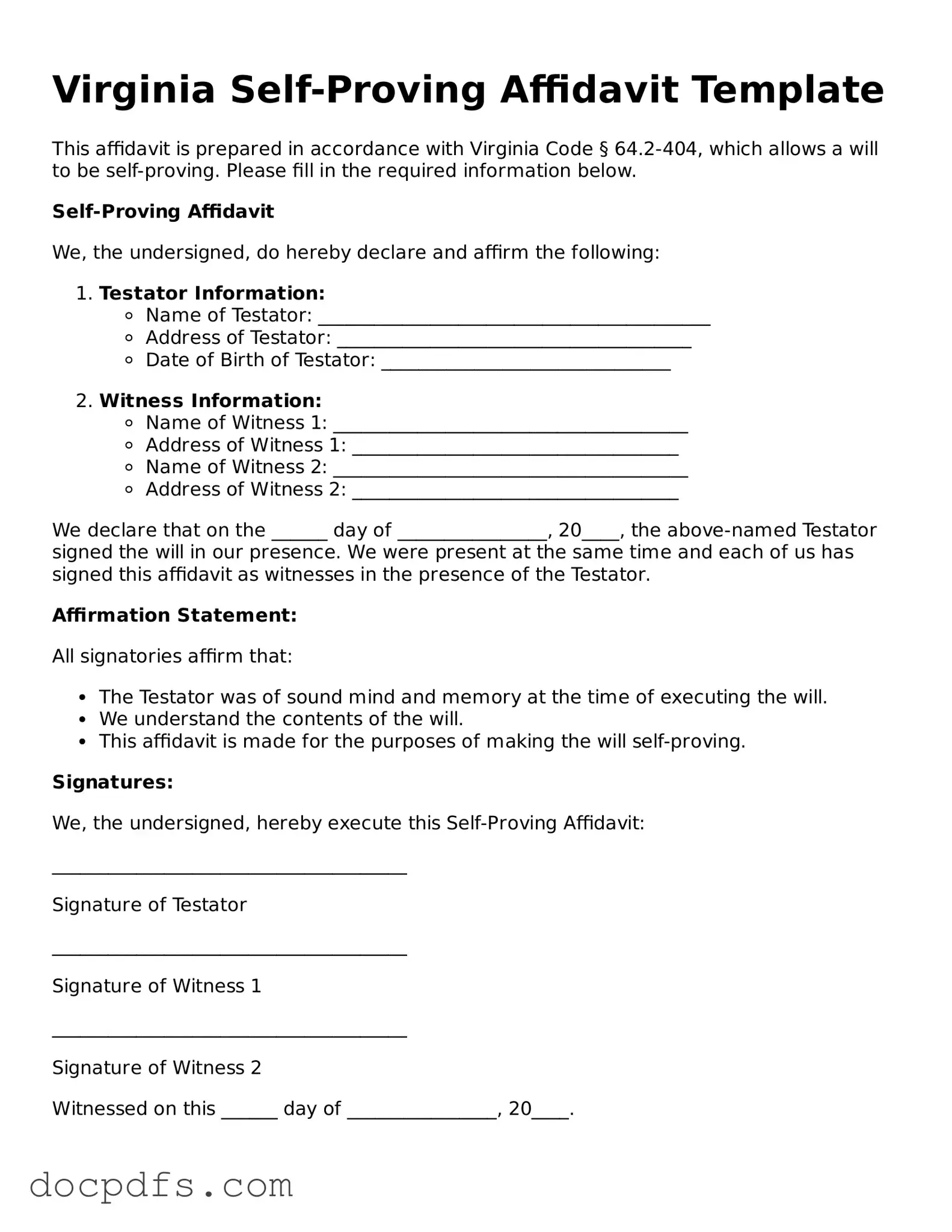Free Virginia Self-Proving Affidavit Form
The Virginia Self-Proving Affidavit is a legal document that allows a testator's will to be validated without the need for witnesses to appear in court. This form simplifies the probate process, ensuring that the testator's wishes are honored efficiently. By executing this affidavit, individuals can provide peace of mind that their estate will be managed according to their desires.
Open Self-Proving Affidavit Editor Now

Free Virginia Self-Proving Affidavit Form
Open Self-Proving Affidavit Editor Now

Open Self-Proving Affidavit Editor Now
or
⇓ Self-Proving Affidavit
Finish this form the fast way
Complete Self-Proving Affidavit online with a smooth editing experience.